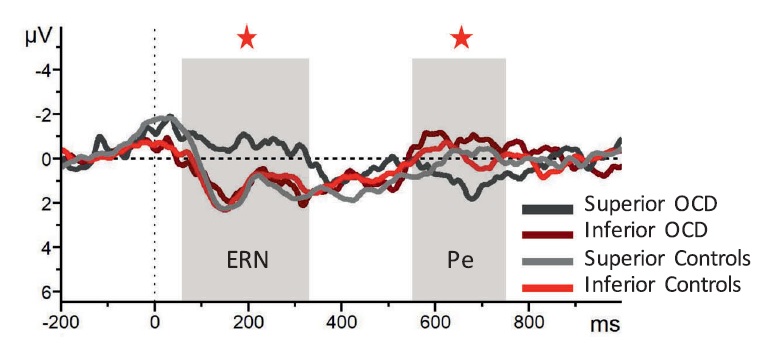The symptoms of obsessive-compulsive disorder are attenuated in situations of social superiority
The symptoms of obsessive-compulsive disorder are attenuated in situations of social superiority

Can the environment influence the performance of people with obsessive-compulsive disorder? A study led by Pompeu Fabra University reveals that the social context of obsessive-compulsive disorder (OCD) patients modulates the neural mechanisms underlying the disease and, it concludes, in situations of social superiority, certain neurological alterations of this disorder are relieved.
“The monitoring of errors and the processes of cognitive and motor control are altered in people who suffer from OCD”, says Núria Sebastián, study coordinator and director of the research group on Speech Acquisition and Perception (SAP) at UPF. “Moreover, patients with OCD have difficulty interacting with other people and generally show signs of anxiety related to social evaluations”. These alterations are responsible for the characteristic symptoms of OCD: obsessive thoughts, worrying about making errors, high expectations of other people’s evaluations and repetitive behaviour.
Generally, the brain activity of OCD patients is different from that of healthy people. Using electroencephalography techniques, the team has monitored the brain activity of people with and without OCD in different social contexts, always governed by a hierarchy. The results show that, when they adopt a dominant role, people who suffer from OCD show similar brain activity to that of healthy people.
“Social contexts affect various mental processes and may improve or worsen our performance when carrying out different tasks”, says Hernando Santamaría, main author of the study and UPF researcher. “The results that we have obtained show that OCD patients are particularly sensitive to social context, perhaps because of a greater emotional load associated with the hierarchical context”.
The study, which has been published in the journal Social Neuroscience, contributes significantly to the understanding of the relationship between the social environment and the cognitive processes of OCD, and opens the way to research into new therapies based on simulating this type of social contexts.

Figure: Social effects in the processes of monitoring errors. Patients with OCD show a different electrical activity when in a situation of inferiority (in other words, performing the task against a “superior” participant) but it is equal to the controls when they are in a situation of dominance.
Reference article: Hernando Santamaría-García, Carles Soriano-Mas, Miguel Burgaleta, Alba Ayneto, Pino Alonso, José M. Menchón, Narcis Cardoner & Nuria Sebastián-Gallés (2017): Social context modulates cognitive markers in Obsessive-Compulsive Disorder, Social Neuroscience, DOI: 10.1080/17470919.2017.1358211
